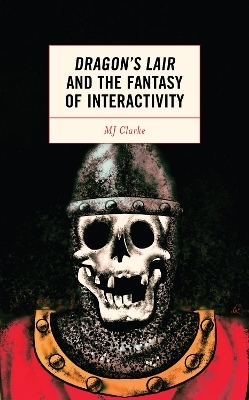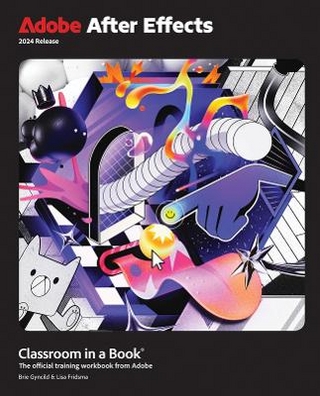
Dragon's Lair and the Fantasy of Interactivity
Seiten
2022
Lexington Books (Verlag)
978-1-7936-3603-4 (ISBN)
Lexington Books (Verlag)
978-1-7936-3603-4 (ISBN)
This book revives a neglected video game classic through a critical examination of its design, its makers, its recording medium, and its imagery. The investigation of these facets reveals a game shaped by the demands of its context and is instructive for contemporary debates in media studies.
Perhaps no arcade game is so nostalgically remembered, yet so critically bemoaned, as Dragon’s Lair. A bit of a technological neanderthal, the game implemented a unique combination of videogame components and home video replay, garnering great popular media and user attention in a moment of contracted economic returns and popularity for the videogame arcade business. But subsequently, writers and critics have cast the game aside as a cautionary tale of bad game design. In Dragon’s Lair and the Fantasy of Interactivity, MJ Clarke revives Dragon’s Lair as a fascinating textual experiment interlaced with powerful industrial strategies, institutional discourse, and textual desires around key notions of interactivity and fantasy. Constructing a multifaceted historical study of the game that considers its design, its makers, its recording medium, and its in-game imagery, Clarke suggests that the more appropriate metaphor for Dragon’s Lair is not that of a neanderthal, but a socio-technical network, infusing and advancing debates about the production and consumption of new screen technologies. Far from being the gaming failure posited by evolutionary-minded lay critics, Clarke argues, Dragon’s Lair offers a fascinating provisional solution to still-unsettled questions about screen media.
Perhaps no arcade game is so nostalgically remembered, yet so critically bemoaned, as Dragon’s Lair. A bit of a technological neanderthal, the game implemented a unique combination of videogame components and home video replay, garnering great popular media and user attention in a moment of contracted economic returns and popularity for the videogame arcade business. But subsequently, writers and critics have cast the game aside as a cautionary tale of bad game design. In Dragon’s Lair and the Fantasy of Interactivity, MJ Clarke revives Dragon’s Lair as a fascinating textual experiment interlaced with powerful industrial strategies, institutional discourse, and textual desires around key notions of interactivity and fantasy. Constructing a multifaceted historical study of the game that considers its design, its makers, its recording medium, and its in-game imagery, Clarke suggests that the more appropriate metaphor for Dragon’s Lair is not that of a neanderthal, but a socio-technical network, infusing and advancing debates about the production and consumption of new screen technologies. Far from being the gaming failure posited by evolutionary-minded lay critics, Clarke argues, Dragon’s Lair offers a fascinating provisional solution to still-unsettled questions about screen media.
MJ Clarke is associate professor in TV, film, and media studies at California State University, Los Angeles.
Acknowledgments
Introduction
Chapter 1: Dragon's Lair: The Hardware
Chapter 2: Dragon's Lair: The Business
Chapter 3: Dragon's Lair: The Disc
Chapter 4: Dragon's Lair: The Fantasy
References
About the Author
| Erscheinungsdatum | 28.05.2022 |
|---|---|
| Verlagsort | Lanham, MD |
| Sprache | englisch |
| Maße | 160 x 227 mm |
| Gewicht | 413 g |
| Themenwelt | Informatik ► Grafik / Design ► Film- / Video-Bearbeitung |
| Sozialwissenschaften ► Kommunikation / Medien ► Medienwissenschaft | |
| Sozialwissenschaften ► Soziologie ► Allgemeine Soziologie | |
| ISBN-10 | 1-7936-3603-6 / 1793636036 |
| ISBN-13 | 978-1-7936-3603-4 / 9781793636034 |
| Zustand | Neuware |
| Informationen gemäß Produktsicherheitsverordnung (GPSR) | |
| Haben Sie eine Frage zum Produkt? |
Mehr entdecken
aus dem Bereich
aus dem Bereich


